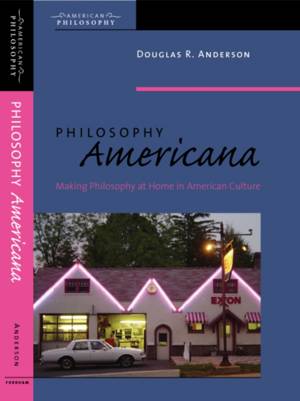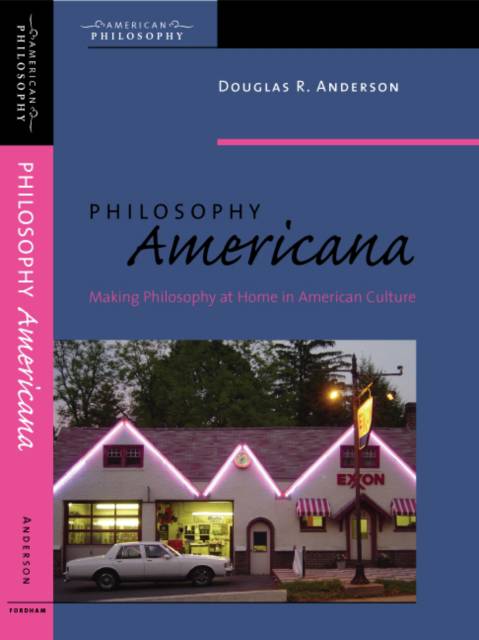
- Afhalen na 1 uur in een winkel met voorraad
- Gratis thuislevering in België vanaf € 30
- Ruim aanbod met 7 miljoen producten
- Afhalen na 1 uur in een winkel met voorraad
- Gratis thuislevering in België vanaf € 30
- Ruim aanbod met 7 miljoen producten
Zoeken
€ 145,45
+ 290 punten
Uitvoering
Omschrijving
In this engaging book, Douglas Anderson begins with the assumption that philosophy--the Greek love of wisdom--is alive and well in American culture. At the same time, professional philosophy remains relatively invisible.
Anderson traverses American life to find places in the wider culture where professional philosophy in the distinctively American tradition can strike up a conversation. How might American philosophers talk to us about our religious experience, or political engagement, or literature--or even, popular music? Anderson's second aim is to find places where philosophy happens in nonprofessional guises--cultural places such as country music, rock'n roll, and Beat literature. He not only enlarges the tradition of American philosophers such as John Dewey and William James by examining lesser-known figures such as Henry Bugbee and Thomas Davidson, but finds the theme and ideas of American philosophy in some unexpected places, such as the music of Hank Williams, Tammy Wynette, and Bruce Springsteen, and the writingsof Jack Kerouac. The idea of "philosophy Americana" trades on the emergent genre of "music Americana," rooted in traditional themes and styles yet engaging our present experiences. The music is "popular" but not thoroughly driven by economic considerations, and Anderson seeks out an analogous role for philosophical practice, where philosophy and popular culture are co-adventurers in the life of ideas. Philosophy Americana takes seriously Emerson's quest for the extraordinary in the ordinary and James's belief that popular philosophy can still be philosophy. Philosophy Americana: Making Philosophy at Home in American Culture is available from the publisher on an open-access basis.
Specificaties
Betrokkenen
- Auteur(s):
- Uitgeverij:
Inhoud
- Aantal bladzijden:
- 308
- Taal:
- Engels
- Reeks:
- Reeksnummer:
- nr. 18
Eigenschappen
- Productcode (EAN):
- 9780823225507
- Verschijningsdatum:
- 15/05/2006
- Uitvoering:
- Hardcover
- Formaat:
- Genaaid
- Afmetingen:
- 160 mm x 236 mm
- Gewicht:
- 535 g

Alleen bij Standaard Boekhandel
+ 290 punten op je klantenkaart van Standaard Boekhandel
Beoordelingen
We publiceren alleen reviews die voldoen aan de voorwaarden voor reviews. Bekijk onze voorwaarden voor reviews.











